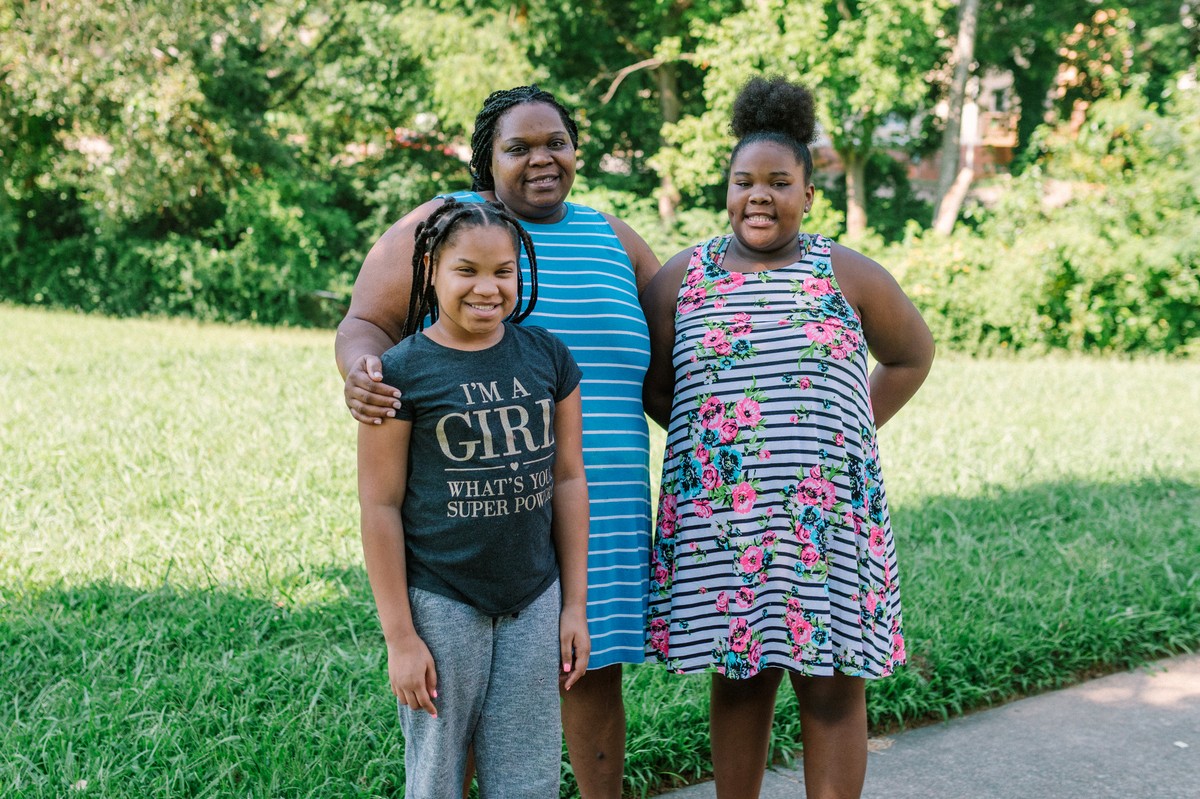‘Tidal Wave’ Of Power Shut-Offs Looms As Nation Grapples With Heat

Enlarge this image
People visit Centennial Olympic Park in Atlanta on May 2. Many families in Atlanta and across the U.S. could face power disconnections as shut-off moratoriums imposed at the start of the pandemic expire. This comes as supplemental unemployment benefits are also set to lapse.
Kevin C. Cox/Getty Images
hide caption
toggle caption
Kevin C. Cox/Getty Images

Enlarge this image
Talayla Feggins (left) and Tranese Feggins (right) help their mother, Harriet Feggins, water flowers at their home in west Atlanta. Harriet has shut off the power in some rooms and has hung blackout curtains to try to keep the house cool and her electric bill low.
Lynsey Weatherspoon for NPR
hide caption
toggle caption
Lynsey Weatherspoon for NPR

Enlarge this image
West Atlanta resident Harriet Feggins has been out of work since March because of the pandemic. So far she has managed to pay her electric bill by scraping together odd jobs and dipping into her 401(k). «I’m trying to do everything I can,» she says, but she worries it won’t be enough.
Lynsey Weatherspoon for NPR
hide caption
toggle caption
Lynsey Weatherspoon for NPR

Enlarge this image
Tranese (left), Harriet and Talayla Feggins stand outside their home in west Atlanta. Talayla, 13, relies on a machine to help with her asthma.
Lynsey Weatherspoon for NPR
hide caption
toggle caption
Lynsey Weatherspoon for NPR
Tranese (left), Harriet and Talayla Feggins stand outside their home in west Atlanta. Talayla, 13, relies on a machine to help with her asthma.
Lynsey Weatherspoon for NPR
«We are just beginning to see the tip of the iceberg of what the demand is out there and the unmet need as far as utility assistance is concerned,» says Michael J. Bradford, director of the Project SHARE program at the Georgia division of the Salvation Army.
Congress provided $900 million in utility-related funding for low-income households in one of its relief packages. Energy watchdogs, consumer advocates and utilities are asking for more, and some of them say Washington needs to act fast.
West Atlanta resident Harriet Feggins has a 13-year-old daughter who relies on a machine to help with her asthma. Feggins has been out of work since March because of the pandemic. She has managed to pay her electric bill by dipping into her 401(k) and scraping together odd jobs — watching the kids of essential workers and cleaning homes. She has shut off the power in parts of her home and has hung blackout curtains to try to keep the house cool and her electric bill low.
A community group is trying to set her up with a federal program that provides utility bill assistance. But she’s not sure if it will come through, or when.
Until then, she says, «every little change and money I get I’ll put towards my Georgia Power bill, because we can’t be in the dark.»
Elizabeth Baker contributed to this story.














Комментарии 0